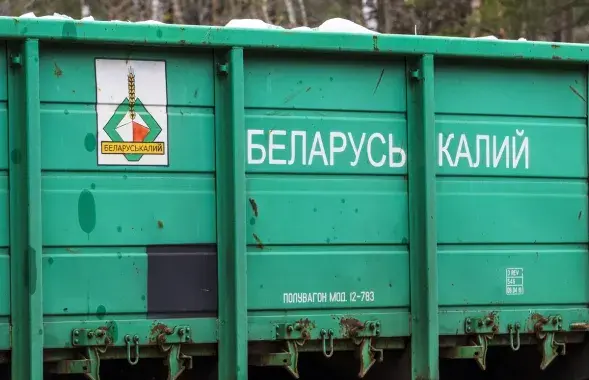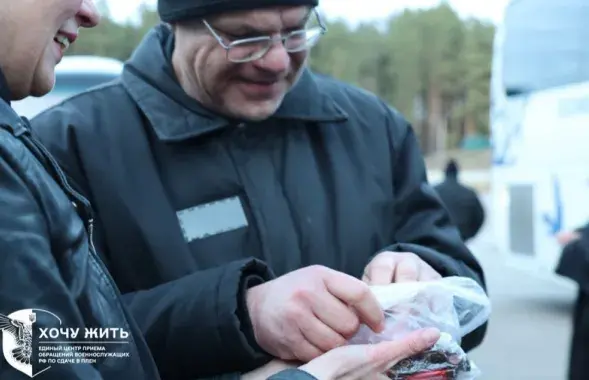Expert: “Belarus has indeed refused from the Russian rouble at least three times”
The European Radio for Belarus has asked Leanid Zaika, a renowned economist who runs the Minsk-based Strategy think tank, to comment on this development.
Leanid Zaika: “About ten years ago, we signed several agreements with Russia to perform a joint regulation of the monetary sphere. Over the past five years, we have had a joint currency regulation in place, with the Belarusian currency tied to the Russian rouble.
Everything was very simple. In the long-term, the countries agreed to achieve a single currency. That’s why they regulated their own currency rates. In Russia, the rate was Rur30 against $. Presently, the rate is 25:1. Russia is simply overwhelmed with dollars. Russia has a wonderful currency position. This has led us to the revaluation of our monetary unit.
When we were tied to the Russian rouble, the latter grew stronger from 30:1 to 25:1. This option forced us to revaluate the Belarusian rubel thus making our exports less competitive.
ERB: You are saying that the Russian rouble has grown stronger. And since we were tied to it, our exports grew more expensive and it was of no advantage. Is this the only reason for us to have refused from the Russian rouble?
Leanid Zaika: “Why now? Economically, it makes more sense to tie up to the dollar. In this sense, the dollars appears to be the best target. It is flexible enough to respond to fluctuations at the world markets.
This is advantageous both in technical and economic terms. Russia cannot be as flexible as the dollar, because it has more complicated situation. Let’s say it is like a huge tanker which finds it hard to change its course.
Another thing is that we are not going to introduce the Russian rouble. When in talks with Lukashenka, Russia’s Putin would set different targets, e.g. make the Russian rouble as Belarus’s currency initially for cashless transactions and eventually as the country’s cash.
The integration game is over. I could say that Belarus have in fact refused from the Russian rouble at least three times. So when we untie our currency from the Russian rouble and refuse from introducing a single currency, why do we need to pretend that we want to go on with the project?
It means that we have chosen to follow our own course. Clearly, Russia’s strong denial to give a loan to Belarus also contributed to Belarus’s move. (The Belarus government) has decided to cock a snook at the Russian Central Bank and the Kremlin, meaning that we start sailing on our own by tying up to the dollar.
ERB: Does it mean that Belarus has completely refused from introducing a joint monetary union with Russia?
Leanid Zaika: It is clear that we will not keep talking about the alleged single currency. We have lost a lot (hundreds of million dollars) over the past five years because of following the Russian rouble and revaluating our currency against the dollar.
ERB: You are saying that we have decided to untie from the Russian rouble because it is too strong. What is the point of tying up to a weaker currency?
Leanid Zaika: Consumers could fear when they hear that our currency is depreciated. What is the advantage? Americans pursue a rather intelligent monetary policy. US dollar is more flexible to market fluctuations. It is very important for a monetary unit to guess correctly the motion of the world markets. At the same time, Euro has grown stronger due to a more rigid monetary policy of EU countries, becoming 30-percent more expensive than the US dollar.
The countries which depreciated their currencies made their exports cheaper.
You can go to a car market and see: American cars are 30-percent cheaper than European makes, because the dollar has become cheaper. 30 percent is a serious thing. The same applies to equipment, machinery, apparel, foodstuffs, etc.
If we turn away from the Russian rouble and tie up to the US dollar, while the Russian rouble keeps growing, we will have our goods cheaper at the Russian market. They will sell better, because they will become more competitive by the price.
This makes sense, if the Russians don’t lament and demand so that we don’t dump at the Russian market. But in this regard, it will be difficult for them to produce any claims, because these are purely monetary mechanical fluctuations influenced by the specifics of the monetary policy.
ERB: Was the previous monetary policy successful? Does it mean that we refuse from the Russian rouble because it did not work well?
Leanid Zaika: “This experiment was working. Our exporters and importers had a clear price picture. In other words, it was not a mistake to tie to the Russian rouble.
We bought oil and gas in Russia and knew exactly that “I would not go bankrupt because the dollar rate would abruptly change”. The dollar rate did not affect. Now the situation will be different: one can guess it right, yet one cannot. The risks increase indeed. But this is the bottom line of a market, a business. Those who act in a more intelligent way at this field will win.
ERB: Can we suggest that this move by Belarus is more political than economic?
Leanid Zaika: Yes. One can say that the Belarusian president feels hurt by Russia. And he wants to demonstrate that we untie. But this is not a gesture which could mean anything in the strategic sense.
It does not mean that I marry Jane instead of Masha. This is a rather important technological element of the monetary policy. I don’t see any stupidity or political publicity aims. Absolutely not.
One can reflect whether this is “our response to Chamberlain” or not, but from the professional viewpoint, it is not a bad decision.
ERB: What is the difference between what currency you tie your monetary unit to? Does it affect greatly the economy?
Leanid Zaika: It always affects. For instance, let’s take a look at exports and imports. What is the share of hard currency there? If we have 60 percent of Russian goods in our imports, this becomes a dominant currency. And we must orient ourselves towards the main currency of our main partner.
If EU were our main trade partner, Euro would be close to us. Everyone somehow likes the dollar. Bribes are paid in dollars; cars and property are bought in dollars. People are not that stupid. They understand that Euro is Euro and the dollar is a currency that has endured the longest. This is important for consumers.
ERB: Will the move bring about changes in the trade between Belarus and Russia?
Leanid Zaika: “Economy is ruled by logical and rigid laws. We don’t need to take a pose, saying that we will now export less. No. The Russian market is very important to us. In principle, we have good positions there, e.g. our machinery, trucks, tractors. By the way, the sales are growing.
At the same time, by tying up to the dollar, we do not hurt anyone. The Russian economists that will comment on this situation will simply note that Russia loses due to revaluation of the Russian rouble and that the Russian export becoming less competitive.
By having tied up to the dollar, we can say within six months or a year our goods will become cheaper than the Russian goods. This is something we can count on. This effect will be of advantage to Belarus, not the Russians.





















